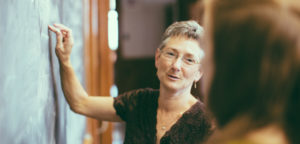
Defining and Denouncing Student Shaming: A Teacher’s Reflection
To continue reading, you must be a Teaching Professor Subscriber. Please log in or sign up for full access.

To continue reading, you must be a Teaching Professor Subscriber. Please log in or sign up for full access.

Like birthdays, anniversaries are occasions for reflection, and as I approach the fifth anniversary of my teaching career, I find that my thoughts are drawn to the things that I did badly. Here’s a list of five teaching mistakes I have made. I share them

Graham Broad’s piece reminded me of a short critique John Kenneth Galbraith did of his teaching: “How I Could Have Done Much Better.” The honesty of both is courageous and refreshing. Most of us were trained as content experts. We learned to teach by doing

As I prepared to teach my first-year orientation class this fall, I realized that I am 44 years older than my youngest students. Our window of shared experiences is small. They’ve always had iPhones and been able to text and use Instagram, and most are

Having never viewed myself as an expert and periodically believed I’m an imposter just waiting to be found out, I went a long time without worrying about the so-called curse of knowledge. I couldn’t possibly know too much math and chemistry, the content I teach.

A year ago I received the worst student ratings of instruction (SRIs) in my 28 years of teaching. On the Likert scale I am normally between 4 and 5 for quality of instructor and quality of the course. Last year, however, my fall term ratings

It is time to bid farewell to a career I have loved for so long that it now seems entirely too short. Reflecting on 42 years of teaching and some of my missteps, I share here a few of the major lessons I’ve learned.

Think of the last time you had a masterfully planned class session fall completely flat. If you have been teaching for more than a week, you’ve been there. How did you react? Did you blame the students, the time of day the class meets, or

When our teaching focuses entirely on learning outcomes, we can become narrowly focused on seeing our students as skillsets. This can lead us to break learning into smaller and smaller parts so that we can successfully measure student “success.” But if, as Palmer emphasizes, we

“All teachers can improve; most should.” Did someone tell me this or did I make it up? I’ll put it in quotes because I’m not sure, but it’s a one-liner I like. To improve means to get better. It’s about ongoing efforts to teach in